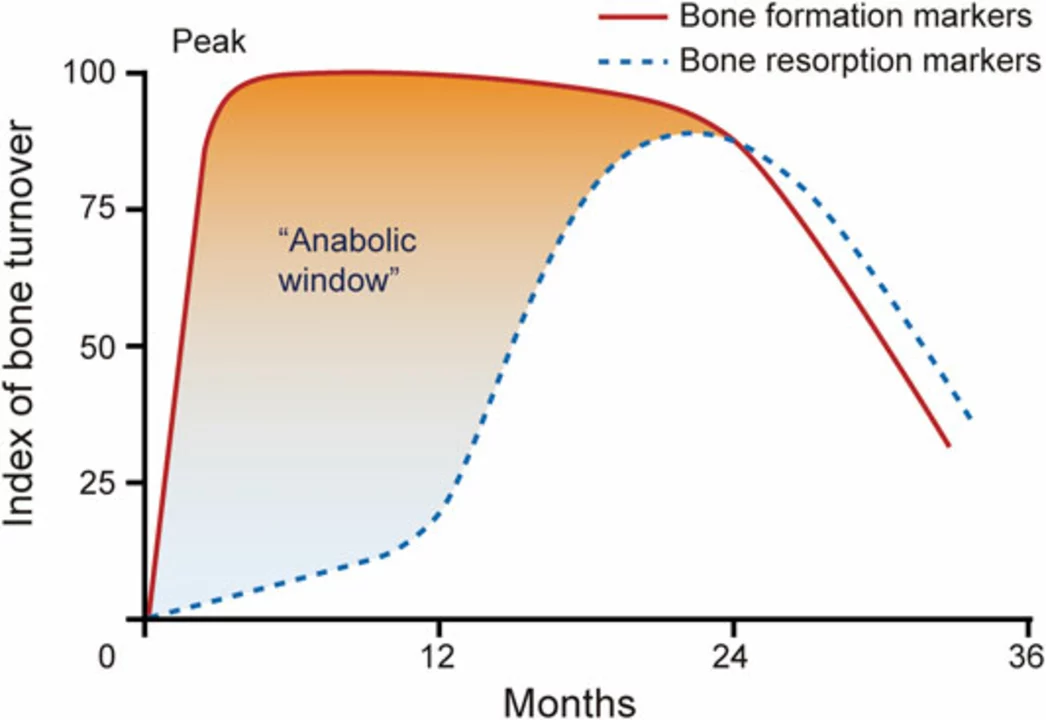Parathyroid Hormone (PTH): What It Does and Why It Matters
Parathyroid hormone, or PTH, controls blood calcium. That sounds small, but calcium affects nerves, muscles, bones, and your heart. Too much or too little PTH creates clear symptoms and long-term risks like weak bones or kidney stones.
PTH is made by four tiny glands behind the thyroid. When blood calcium falls, PTH rises to pull calcium from bone, increase gut absorption (via vitamin D), and reduce kidney loss. When calcium is high, PTH goes down. Problems happen when this feedback breaks.
How doctors test PTH
If your doctor suspects a problem they check blood calcium and PTH at the same time. Normal intact PTH ranges differ by lab but often sit around 10–65 pg/mL. High calcium with high PTH points to primary hyperparathyroidism. Low calcium with high PTH suggests secondary causes like vitamin D deficiency or chronic kidney disease.
Useful follow-ups include serum phosphate, 25‑hydroxy vitamin D, and a 24‑hour urine calcium when kidney stones are a concern. A bone density scan (DEXA) shows if bones are losing strength. For surgical planning, imaging like ultrasound or Sestamibi may locate an overactive gland.
Treatment and management
Treatment depends on the cause and how bad symptoms are. For primary hyperparathyroidism, surgery to remove the overactive gland is often the best fix, especially if you have symptoms, bone loss, or high calcium. If surgery isn’t right, doctors may use medication such as cinacalcet to lower calcium or give bisphosphonates to protect bone.
When PTH is high because of low vitamin D or kidney disease, fixing vitamin D levels and addressing kidney function are the first steps. Be careful: repleting vitamin D can raise calcium and needs monitoring. Some drugs, like lithium or thiazide diuretics, can change PTH or calcium — mention all meds to your doctor.
Low PTH (hypoparathyroidism) causes low calcium and symptoms like tingling, muscle cramps, or seizures. Treatment focuses on calcium and active vitamin D supplements. In select cases, synthetic PTH (teriparatide or PTH 1‑84) is used under specialist care.
Watch for practical signs: new kidney stones, sudden fatigue, bone pain, or mood changes. If labs show abnormal calcium or PTH, request repeat testing and ask about bone density. Keep a record of results and any imaging — it helps decisions about surgery or long‑term care.
Bottom line: PTH keeps calcium balanced. Small gland problems can cause big symptoms, but tests are clear and many treatments work well. Talk openly with your provider about symptoms, meds, and follow‑up testing so you get the right plan.
Everyday tips: stay hydrated, limit excessive calcium supplements unless a doctor recommends them, and avoid high‑dose vitamin D without testing. If you have kidney stones or unexplained bone loss, ask for an endocrinology referral. After parathyroid surgery expect calcium checks in the first 24–72 hours and then at intervals; low calcium after surgery is common and may need temporary supplements. Keep copies of all lab reports — they simplify future care. Ask questions and keep a symptom diary.

